In today’s health-conscious world, weight loss remains a prevalent goal for many individuals. The quest for shedding those extra pounds has led to the rise in popularity of weight loss supplements. With promises of quick results and effortless transformations, these supplements have attracted the attention of countless individuals across the United States. However, before you embark on your weight loss journey, it is crucial to understand the potential risks associated with these pills [1].
In this blog, we delve into the world of weight loss supplements, shedding light on their effectiveness as well as the side-effects they may pose. Our focus will be on some popular supplements that have gained significant attention, including Garcinia Cambogia, Hydroxycut, Green coffee bean extract, Caffeine, Orlistat, Raspberry Ketones, Glucomannan, Meratrim, Green tea extract, Conjugated linoleic acid, Forskolin, and Bitter orange.
While weight loss supplements offer tempting possibilities, it is vital to approach them with caution. These pills often contain a combination of ingredients, each having its own potential effects and interactions with the body. It is essential to be aware of any potential risks to make an informed decision about incorporating them into your weight loss journey.
One critical aspect we will explore in this blog is the side-effects associated with weight loss supplements. These pills may claim to aid in burning fat, boosting metabolism, suppressing appetite, or increasing energy levels. However, they can also come with potential drawbacks that are often overlooked or under reported.
Some of the common side-effects associated with weight loss supplements include gastrointestinal disturbances, such as nausea, diarrhea, and constipation. Additionally, they may lead to elevated heart rate, increased blood pressure, and sleep disturbances. It is also important to note that these supplements may have adverse effects when combined with certain medications or underlying health conditions.
In our comprehensive examination of weight loss supplements, we will provide a balanced perspective, outlining both the potential benefits and the associated risks. By gaining a better understanding of these pills, their ingredients, and the possible side-effects, you can make informed decisions about your weight loss journey while prioritizing your health and well-being.
Remember, it is crucial to consult with a healthcare professional before starting any new weight loss regimen, especially if you have per-existing medical conditions or are taking medication. Your doctor can provide personalized advice and help you navigate the wide array of weight loss supplements available on the market.
Stay tuned for our upcoming blog posts, where we will take a closer look at each of the popular weight loss supplements mentioned earlier, highlighting their potential benefits, risks, and considerations.
Garcinia Cambogia

Garcinia cambogia shot to fame worldwide following its feature on “The Dr. Oz Show” in 2012. This small, green fruit, resembling a pumpkin, captured the attention of many. The extract from its skin, containing hydroxycitric acid, was marketed as a miraculous diet pill.
So, how does it work?
Animal studies indicate that garcinia cambogia can inhibit a fat-producing enzyme in the body and increase serotonin levels, potentially curbing cravings [2]. But does it truly live up to its claims? A meta-analysis revealed that garcinia cambogia had no significant impact on body weight or body fat percentage compared to a placebo [3].
However, a new review found instances of weight loss [4]. However, it’s important to consider the potential side effects. While garcinia cambogia is generally considered safe when taken in recommended amounts, recent studies have shed light on some serious concerns.
A study documented four cases of women experiencing acute liver failure after consuming weight loss supplements containing garcinia cambogia [5]. Furthermore, cases of liver impairment (hepatotoxicity) and instances of mania have been reported in connection with garcinia cambogia usage [6].
Hydroxycut

For over a decade, Hydroxycut has dominated the market as one of the most popular weight loss supplements worldwide. With a range of products, Hydroxycut has become a household name, but it’s the flagship product that stands out among the rest.
But how does it work?
Hydroxycut boasts several ingredients that claim to aid in weight loss, including caffeine and plant extracts like green coffee extract. When it comes to effectiveness, a meta-analysis revealed that supplementation with green coffee extract, a key ingredient in Hydroxycut, resulted in weight loss compared to a placebo [7].
However, it’s important to be aware of potential side effects. Individuals sensitive to caffeine may experience symptoms such as anxiety, jitteriness, tremors, headaches, dizziness, and dehydration.
It’s worth noting that Hydroxycut faced controversy in the past. Products containing ephedra, a stimulant herb, were pulled from shelves in 2004 due to cardiovascular risks and in 2009 due to hepatotoxicity [8]. Furthermore, cases of acute liver injury have been associated with the use of Hydroxycut supplements [9].
Green coffee bean extract
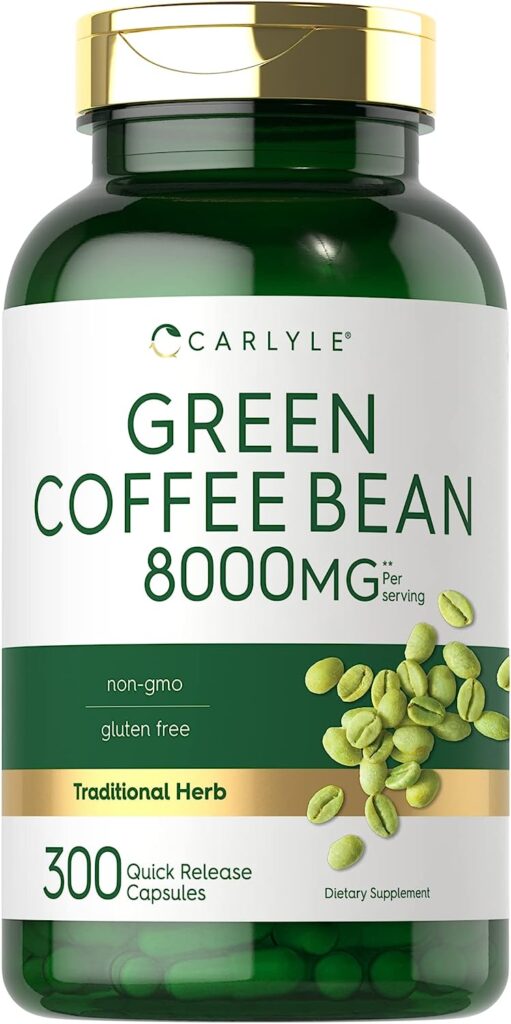
Green coffee beans are un-roasted coffee beans that pack a punch when it comes to weight loss. These beans contain two substances believed to be beneficial: caffeine and chlorogenic acid. The mechanism is simple yet effective. Caffeine, known for its stimulating properties, can increase fat burning, while chlorogenic acid works by slowing down the breakdown of carbohydrates in the gut.
But does it really work?
Multiple human studies have indicated that green coffee bean extract may indeed aid in weight loss [10]. A comprehensive meta-analysis of randomized control trials has demonstrated the significant impact of green coffee bean extract in reducing body mass index.
Moreover, green coffee bean extract offers additional advantages. It has shown potential in lowering blood sugar levels, reducing blood pressure, and boasting a high antioxidant content [11].
However, it’s essential to be aware of potential side effects. Since green coffee beans contain caffeine, they can lead to the same side effects associated with caffeine consumption. Additionally, the chlorogenic acid present in the beans may cause diarrhea, and there is a possibility of allergic reactions in some individuals [12].
Caffeine
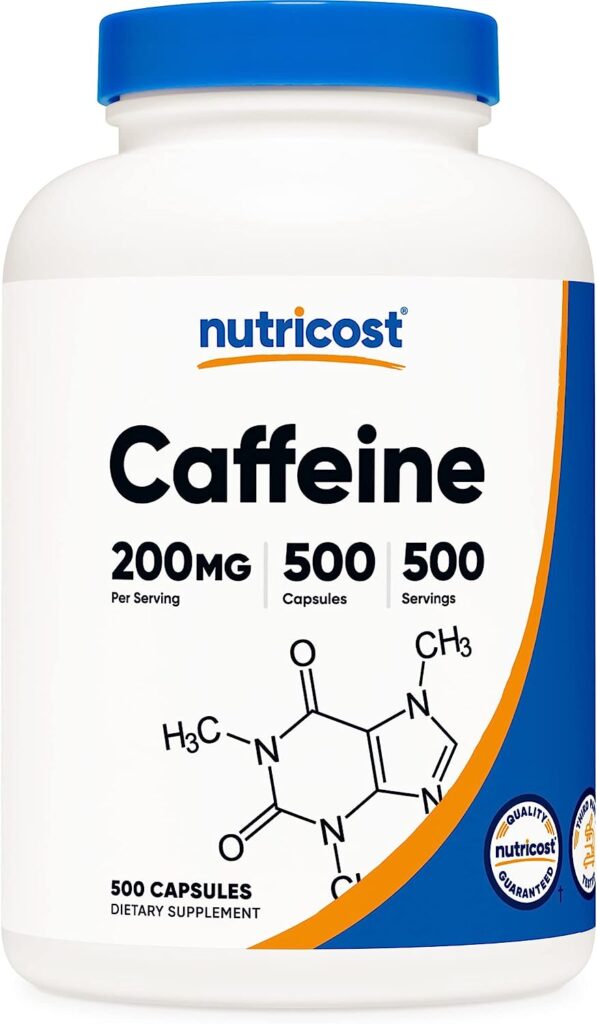
Caffeine, the world’s most widely consumed psychoactive substance, naturally occurs in coffee, green tea, dark chocolate, and is often added to processed foods and beverages [13]. Recognizing its metabolism-boosting properties, many companies incorporate caffeine into commercial weight loss supplements. The mechanism behind caffeine’s impact on weight regulation lies in its ability to increase energy expenditure. Research suggests that caffeine can enhance fat breakdown and stimulate thermogenesis, a process that generates body heat and burns additional calories [14].
While the effectiveness of caffeine for weight loss is modest, some studies indicate its potential for promoting weight reduction in humans [15]. It’s crucial to be mindful of potential side effects associated with high caffeine consumption. For some individuals, excessive amounts of caffeine can lead to anxiety, insomnia, jitteriness, irritability, nausea, diarrhea, and other symptoms. Additionally, caffeine is addictive and can disrupt the quality of sleep. Fortunately, there’s no need to rely on caffeine supplements or pills. The best sources of caffeine are quality coffee and green tea, which offer additional benefits such as antioxidants [16].
When incorporating caffeine into your weight loss journey, it’s important to consume it in moderation and be aware of your personal tolerance and sensitivity. Opting for natural sources like coffee and green tea can provide a balanced approach to enjoying caffeine while reaping its potential health advantages.
Orlistat
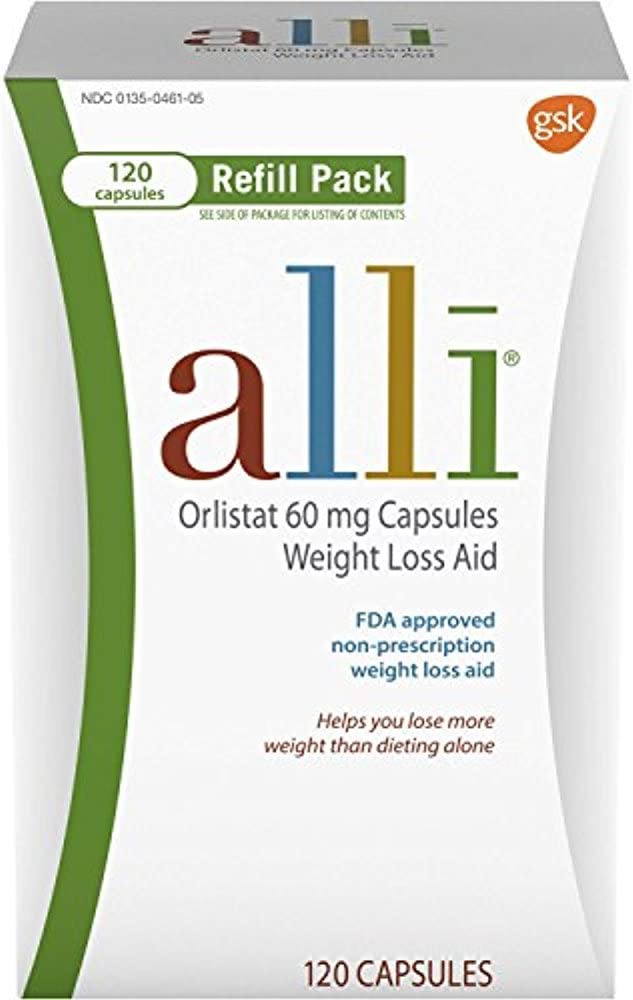
Orlistat, available both over the counter, is a pharmaceutical drug designed to aid weight loss. The mechanism of action involves inhibiting the breakdown of fat in the gastrointestinal tract, leading to a reduced calorie intake from dietary fats [17]. This weight loss pill works in conjunction with lifestyle changes to support weight reduction.
Research indicates that individuals who took orlistat for 12 months, combined with lifestyle modifications, experienced a greater weight loss compared to those on a placebo [17]. Furthermore, apart from its weight loss benefits, orlistat has shown potential in slightly reducing blood pressure and may contribute to a lowered risk of developing type 2 diabetes when used alongside lifestyle changes [18].
It is important to note that orlistat may produce various digestive side effects, including loose and oily stools, flatulence, and increased bowel movements that can be challenging to control. Additionally, the drug may affect the absorption of fat-soluble vitamins such as vitamins A, D, E, and K, potentially leading to deficiencies.
To mitigate these side effects, it is often recommended to follow a low-fat diet while taking orlistat. Interestingly, studies have shown that a low-carb diet without the use of the pill can be equally effective for weight loss when compared to orlistat combined with a low-fat diet [19].
Both diets resulted in comparable weight loss outcomes, with no significant differences observed in blood sugar and blood lipid levels. However, when it came to lowering blood pressure, the combination of orlistat with a low-carb diet demonstrated superior effectiveness [19].
Raspberry Ketones

Raspberry ketone, a natural compound responsible for the distinct aroma of raspberries, has gained popularity as a weight loss supplement in its synthetic form. Although limited human studies have been conducted on raspberry ketones, a study examining a combination of raspberry ketones and other ingredients found an increase in weight loss compared to a placebo [20].
However, it’s important to note that these doses were also associated with elevated blood sugar levels and increased levels of ALT, a liver enzyme that indicates liver dysfunction [21]. It remains uncertain whether these effects would translate to humans, emphasizing the need for further research to evaluate the potential benefits and risks of raspberry ketones.
Regarding side effects, anecdotal reports suggest that raspberry ketones may cause burps to have a raspberry-like smell. Additionally, animal studies have linked high doses of raspberry ketones to increased blood sugar levels and liver dysfunction. However, more research involving human subjects is required to establish a clearer understanding of these effects [21].
Glucomannan
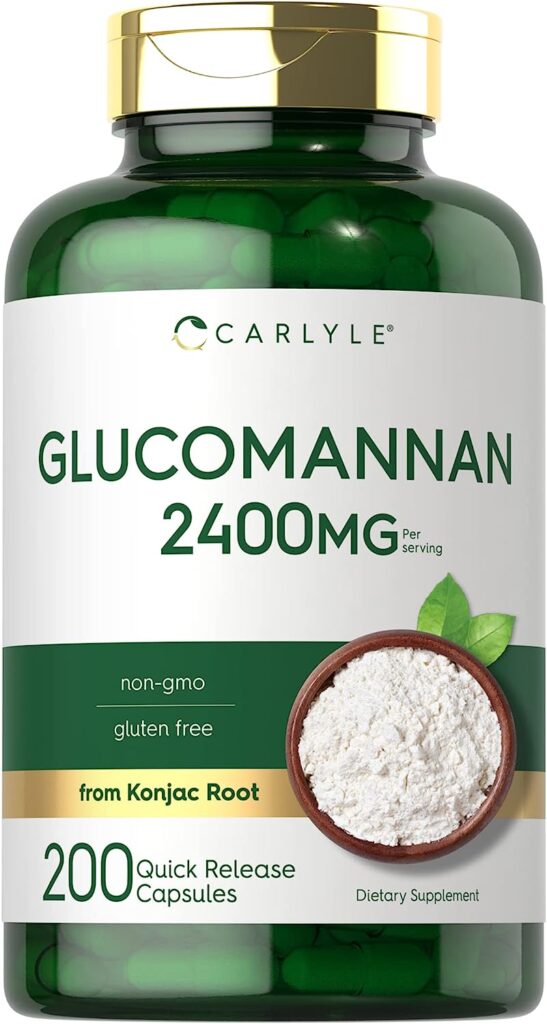
Glucomannan, a type of dietary fiber derived from the roots of the elephant yam, known as konjac, offers potential benefits for weight management. When consumed, glucomannan has the ability to absorb water and transform into a gel-like substance. This gel resides in the gut, promoting a sense of fullness and reducing calorie intake [22].
In terms of effectiveness, a clinical trial demonstrated that consistent supplementation with glucomannan resulted in reduced body weight among overweight participants [23]. It’s worth noting that adherence to regular intake of the supplement played a crucial role in achieving these outcomes.
Beyond its weight management properties, glucomannan acts as a dietary fiber that nourishes beneficial bacteria in the intestines. It has also shown potential in reducing fasting blood sugar levels, improving blood cholesterol profiles, and effectively alleviating constipation [24].
While glucomannan is generally safe to consume, some individuals may experience bloating, flatulence, and soft stools. Additionally, it’s important to be mindful of potential interactions with oral medications if taken simultaneously. To maximize its effectiveness, it is recommended to take glucomannan approximately 30 minutes before meals, accompanied by a glass of water.
Meratrim
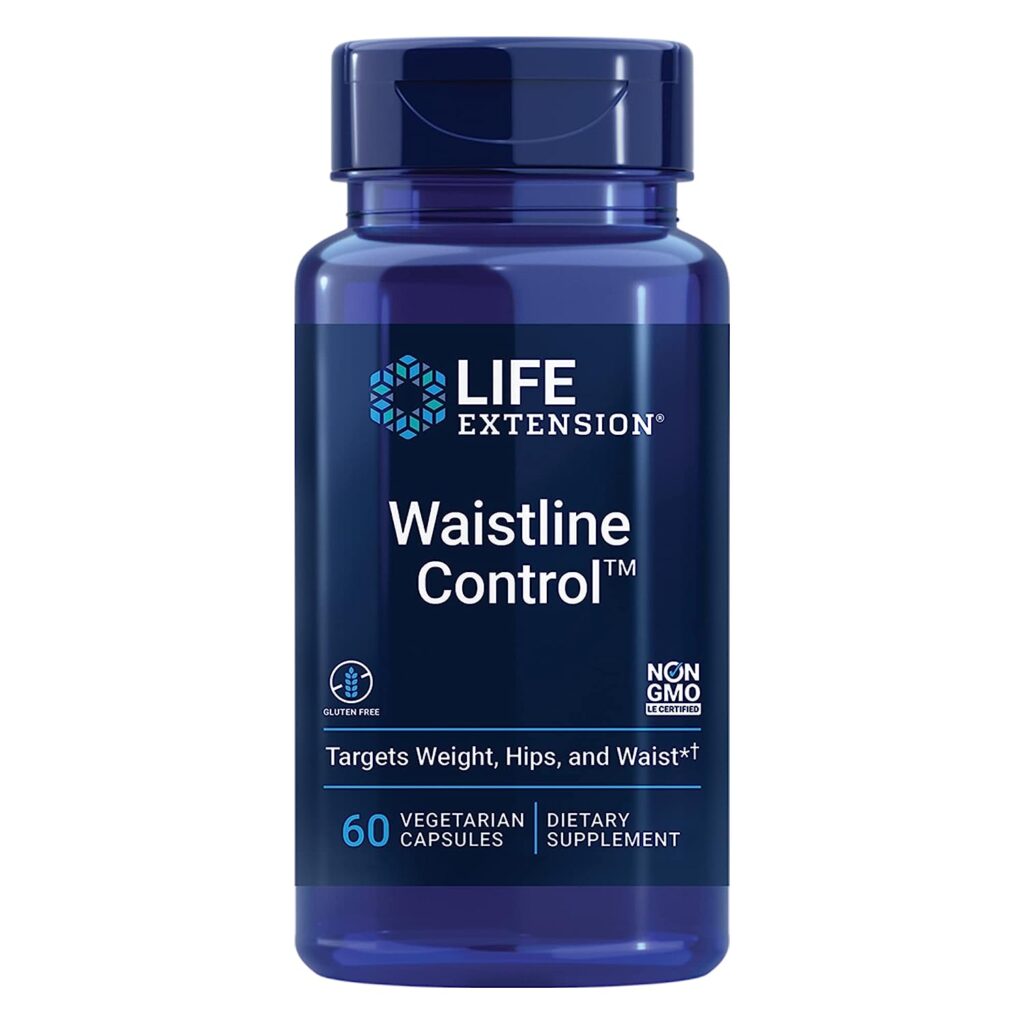
Meratrim is a relatively recent contender in the realm of diet pills, formulated from a combination of two plant extracts. Its purported mechanism of action revolves around inhibiting the proliferation of fat cells, reducing the uptake of fat from the bloodstream, and promoting the burning of stored fat.
While limited research is available on Meratrim, a study investigated its effects on overweight individuals who engaged in increased physical activity. Participants were randomly assigned either Meratrim or a placebo. The Meratrim group exhibited significant reductions in both body mass and waist circumference [25].
Additionally, another study indicated that Meratrim showcased enduring effects on appetite suppression. Remarkably, no adverse effects have been reported with the use of Meratrim. As Meratrim is a newer entrant in the market, further research is warranted to comprehensively assess its efficacy, safety, and long-term effects.
Green tea extract
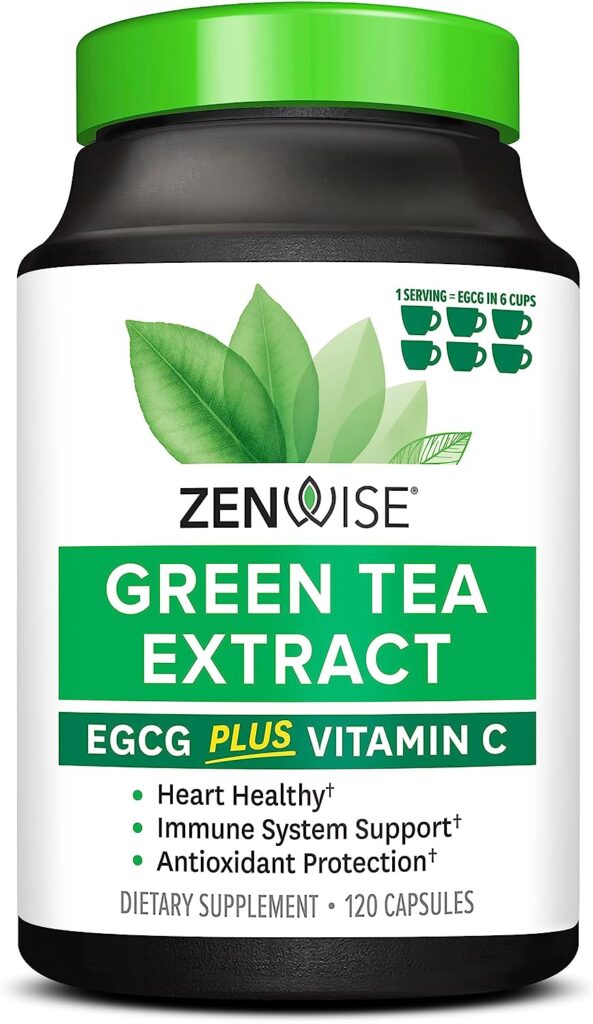
Green tea extract has gained significant popularity as a key ingredient in numerous weight loss supplements. This is primarily due to the presence of EGCG, the main antioxidant found in green tea, which has been linked to potential fat-burning effects.
The proposed mechanism of action of green tea extract revolves around its ability to inhibit certain enzymes like pancreatic lipase. By reducing fat absorption and combining it with the hindrance of these enzymes, it is believed to offer a promising approach for addressing obesity [26].
Numerous human studies have demonstrated the efficacy of green tea extract, particularly when combined with regular exercise, in enhancing fat burning and promoting fat loss, particularly in the abdominal region [27].
When it comes to side effects, green tea extract is generally well-tolerated. However, since it contains caffeine, individuals who are sensitive to caffeine may experience symptoms associated with its consumption. It is worth noting that the potential health benefits associated with drinking green tea may also extend to green tea extract, providing an additional advantage.
Conjugated linoleic acid (CLA)

For years, CLA has remained a popular dietary supplement for promoting fat loss. It is recognized as one of the “healthier” forms of trans fats and can be naturally found in certain animal-derived foods with higher fat content, such as cheese and butter.
The proposed mechanisms of action for CLA include potential appetite reduction, metabolism boosting, and stimulation of body fat breakdown [28]. In terms of effectiveness, a study demonstrated that daily consumption of CLA led to a significant decrease in both body fat mass and body fat percentage compared to a placebo.
However, no significant changes were observed in body weight and BMI [29]. A previous review also reported a weight loss associated with CLA supplementation. However, the authors noted that this level of weight loss may not have significant clinical implications for individuals aiming to lose weight [30].
It is important to be aware that CLA may have various digestive side effects, and prolonged use may carry potential risks. These risks could include the development of fatty liver, insulin resistance, and increased inflammation.
Forskolin

Forskolin, believed to be beneficial for weight loss, is an extract derived from a plant belonging to the mint family. Its mechanism of action involves potentially increasing the levels of a compound called cAMP inside cells, which can activate fat burning processes [31].
In terms of effectiveness, a study conducted on men with excess weight or obesity demonstrated that forskolin led to a reduction in body fat and an increase in muscle mass, without affecting overall body weight. However, an earlier study involving 23 women with excess weight did not observe similar effects [32].
To draw definitive conclusions about the effectiveness of forskolin, further recent and high-quality research is required. There is limited available data regarding the safety profile of this supplement and the associated risk of side effects.
Bitter orange/Synephrine
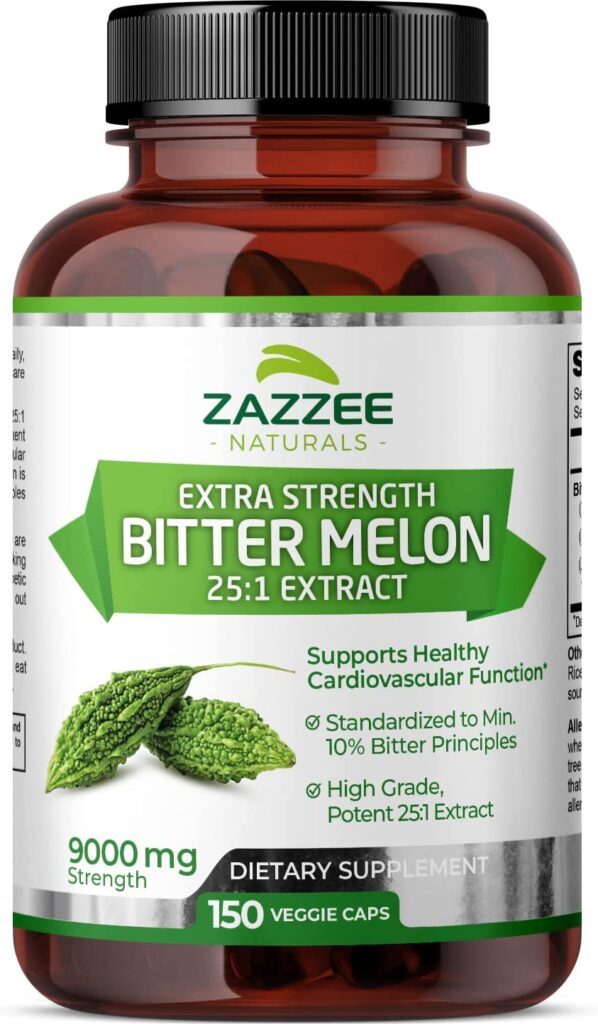
Bitter orange, which is a type of orange, contains a compound called synephrine. Synephrine is chemically related to ephedrine, which was once a popular ingredient in weight loss supplements [33]. However, due to severe side effects, the FDA has banned the use of ephedrine in weight loss products [34]. Synephrine functions similarly to ephedrine but is less potent. It has the potential to reduce appetite and increase fat burning processes [35].
However, the effectiveness of synephrine for weight loss is not well-documented, as there are limited studies on its specific effects. An older review mentioned that ephedrine could lead to significant short-term weight loss [36]. Conversely, a more recent review concluded that synephrine was ineffective for weight loss and could potentially elevate blood pressure and heart rate when used for an extended period [35]. Similar to ephedrine, synephrine carries the risk of serious side effects related to the heart, and there is also a potential for dependence [37].
In Conclusion:
Weight loss supplements have become a popular option for individuals striving to achieve their weight loss goals. In this blog, we have explored a range of popular supplements. While these supplements may offer potential benefits, it is crucial to consider the associated side-effects before incorporating them into your weight loss journey.
Throughout our discussion, we have highlighted the importance of understanding the potential risks and drawbacks of weight loss supplements. From gastrointestinal disturbances to elevated heart rate and sleep disturbances, these pills can have adverse effects on your overall health. It is crucial to prioritize your well-being and consult with a healthcare professional before starting any weight loss regimen or taking dietary supplements.
We must emphasize that weight loss supplements are not a magic solution, and sustainable weight loss requires a comprehensive approach that includes a balanced diet, regular exercise, and healthy lifestyle choices. While supplements may offer a temporary boost, they should never replace a well-rounded, evidence-based weight loss plan.
It is important to remember that the information provided in this blog is for educational purposes only and should not substitute professional medical advice. Always consult with a qualified healthcare professional who can provide personalized guidance based on your individual circumstances and health status.
Weight loss supplements can be a tempting option for individuals looking to shed excess weight, but they come with potential risks and side-effects that should not be overlooked. By approaching these supplements with caution, conducting thorough research, and seeking professional guidance, you can make informed decisions that prioritize your health and well-being on your weight loss journey. Remember, sustainable and healthy weight loss is a gradual process that requires patience, dedication, and a holistic approach.
Disclaimer: The information provided in this blog is for educational purposes only and should not be considered as medical advice. Always consult with a qualified healthcare professional before starting any weight loss program or taking any dietary supplements.
Sources:
- https://www.nccih.nih.gov/health/weight-loss-and-dietary-supplements
- doi: 10.1080/19390211.2018.1429518
- doi: 10.1080/19390211.2018.1429518
- doi: 10.1016/j.ctim.2020.102451
- doi: 10.1007/s11739-018-1880-4
- doi: 10.1177/0897190017734728
- doi: 10.1155/2011/382852
- https://pubmed.ncbi.nlm.nih.gov/31643575/
- doi: 10.12998/wjcc.v9.i20.5490
- doi: 10.3390/nu11071617
- doi: 10.1080/10826068.2020.1786699
- doi: 10.1159/000337461
- doi: 10.3389/fpsyt.2017.00080
- doi: 10.1515/jbcpp-2016-0090
- doi: 10.1080/10408398.2018.1507996
- doi: 10.3390/antiox7020026
- doi: 10.1007/s13679-020-00422-w
- doi: 10.2337/diacare.27.1.155
- doi:10.1001/archinternmed.2009.492
- doi: 10.3390/plants10071323
- doi: 10.1080/19390211.2019.1674996
- doi: 10.1080/19390211.2019.1674996
- doi: 10.1080/07315724.2015.1009194
- doi: 10.4103/jfmpc.jfmpc_168_18
- doi: 10.1186/s12944-016-0306-4
- doi: 10.3390/nu12092873
- doi: 10.1186/s12986-022-00648-6
- doi: 10.3390/nu12071913
- https://pubmed.ncbi.nlm.nih.gov/31256599/
- doi: 10.1007/s00394-011-0253-9.
- doi: 10.3390/ani11030645
- doi: 10.1186/1550-2783-2-2-54
- doi: 10.33029/0042-8833-2021-90-6-101-113
- https://ods.od.nih.gov/HealthInformation/Ephedra.aspx
- doi: 10.1002/ptr.5879
- doi: 10.1001/jama.289.12.153
- doi: 10.3390/nu14194019